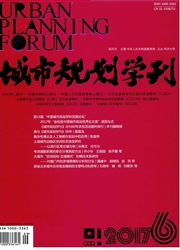

 中文摘要:
中文摘要:
近年来,针对可持续城市的复杂理论议题,逐渐形成了一系列多元化的概念模型。然而.理论的复杂性和模型多元化,引发了可持续城市建设实践当中的观点分歧及政策争议,从而影响到可持续城市理论的实践价值。现从可持续发展的理论本原入手,基于“目标定位一运行机制”的一般性分析框架,将既有的可持续城市概念模型归纳为3种主要的范式类型:①物质空间改良范式——如紧凑城市、宜居城市和区域城市等;②活动行为调整范式——如慢速城市、安全城市、健康城市和绿色城市等;③复杂系统重构范式——如低碳城市、生态城市、包容城市和弹性城市等。并对这些概念模型的理论内涵进行辨析,以实现对可持续城市理论的系统化理解。
 英文摘要:
英文摘要:
In the current urbanizing world, sustainability has become an essential objective of the global development agenda. However, complexity of the concept and diversity in conceptualization weaken the validity of sustainability theories as well as their application in the real world. In this article, based on a general objective-action framework, we analyze some popular models of sustainable cities ineluding compact city, livable city, regional city, slow city, healthy city, safety city, green city, eco-city, low-carbon city, resilient city and inclusive city. These models have been developed separately and can be summarized as providing three types of normative visions, namely improved physical environment, better human behaviors and reconstructed urban system.
 同期刊论文项目
同期刊论文项目
 同项目期刊论文
同项目期刊论文
 期刊信息
期刊信息
